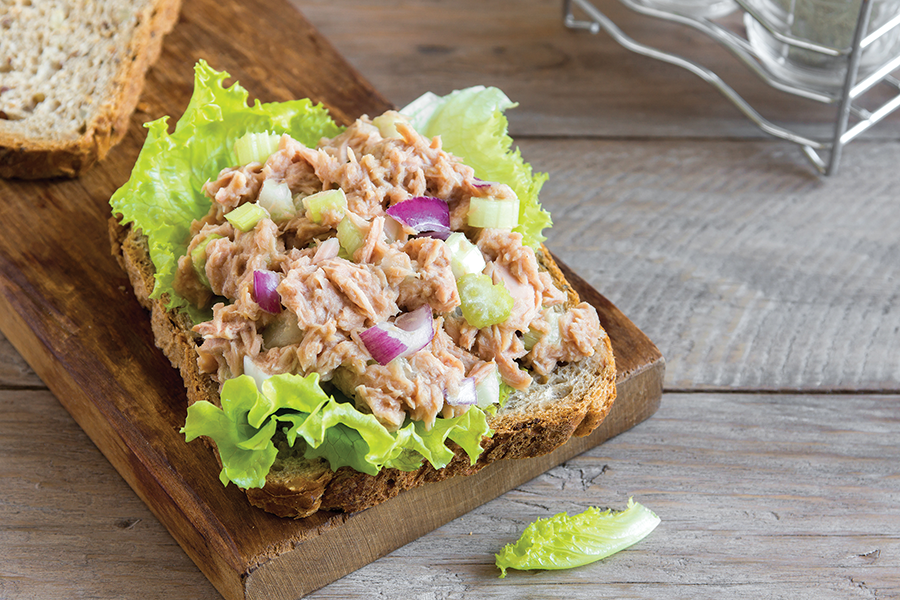
- Eye health starts with what is on our plates. Aim to integrate more fruits and vegetables into your diet, especially leafy greens (e.g., spinach, kale, and collard greens).1,2 Indeed, leafy greens contain carotenoids lutein, beta-carotene, and zeaxanthin, which are plant-based forms of vitamin A. An increased intake of vitamin A has been shown to decrease the risk of developing long-term eye diseases, such as cataracts and age-related macular degeneration.2
- Along with increasing fruit and vegetable intake, the National Eye Institute also recommends engaging in more physical activity.1 Keeping the body active will reduce the risk of overweight and obesity, which can lead to other chronic conditions, such as Type 2 diabetes, that can negatively impact vision and overall eye health.1
- Track any changes in vision. Squinting, blurriness, and general difficulties seeing, as well as the accompaniment of headaches and eye pain, should be reported to a healthcare provider or eye care professional.1
- If prescribed, always wear your glasses and/or contact lenses.1 Without them, the eyes need to work harder to see clearly. This could evoke headaches, double vision, inability to focus, eye strain, and even weaken eye muscles.1,3 Additionally, certain vision problems that are especially prevalent in children, such as amblyopia (a “lazy eye”) or strabismus (crossed eyes), can worsen without glasses or contacts.3
- Wash your hands before touching your eyes/the eye area, especially when putting in or removing contact lenses. Failing to do so could result in eye infections and harmful pathogens entering the body.1,4
- Wear protective eye wear when necessary to avoid eye injuries.1 Many experts suggest that households should own at least one pair of safety goggles.5 Wear goggles, face shields, or welding glasses during activities that involve hazardous chemicals or potentially dangerous substances, flying debris and tiny particles, or objects that could become projectiles.5 Face guards, visors, and various eye protectors should be used when playing certain sports as well.5
- Eye safety also includes wearing sunglasses or goggles with ultraviolet (UV) protection when outdoors.1 According to the American Academy of Ophthalmology, UV light exposure is linked to heightened risk of eye disease and eye growths.7 Opt for sunglasses that block 99 or 100 percent of both UVA (long wavelength radiation correlated to skin aging) and UVB (short wavelength radiation correlated to skin burning) sun radiation.1,7
- Provide your eyes with a chance to rest, especially if most of your day is dedicated to staring at a computer, phone, and/or television screen.1 Too much time staring at one object can prompt eye fatigue.1 To allow rest, the National Eye Institute submits following the 20-20-20 rule. They explain, “every 20 minutes, look about 20 feet away for 20 seconds.”1
- Do not smoke. Akin to sun exposure and a sedimentary lifestyle, smoking increases the risk of eye disorders/diseases.1 Many studies have found that being an active smoker is associated with a greater risk of age-related macular degeneration, cataracts, glaucoma, diabetic retinopathy, and dry eye syndrome.8 Compared with those who do not smoke, smokers are 3 to 4 times more likely to develop age-related macular degeneration, have a three-times greater risk of cataracts, are twice as likely to be affected by dry eye syndrome, and are more likely to suffer from diabetic complications that impact vision.8
- Learn about and discuss familial eye conditions.1 Providing open communication with a healthcare provider regarding family history of eye problems is essential for maintaining eye health and safety and preventing or mitigating disease.1
Sources
- National Eye Institute site. Healthy vision tips. Updated 26 Jun 2019. https://www.nei.nih.gov/learn-about-eye-health/nei-for-kids/healthy-vision-tips. Accessed 26 Jul 2021.
- WebMD site. 10 foods that are good for your eyes. Updated 15 Jun 2020. https://www.webmd.com/eye-health/ss/slideshow-eyes-sight-foods.
Accessed 26 Jul 2021. - Staughton J. If you need glasses, but don’t wear them, does your eyesight get worse? Updated 14 Jun 2021. https://www.scienceabc.com/humans/need-glasses-dont-wear-eyesight-get-worse.html. Accessed 26 Jul 2021





